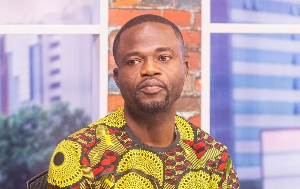The defamation case filed by the Lighthouse Chapel International ( LCI ) against Manasseh Azure, Sulemana Braimah, Edwin Appiah and Media Foundation for West Africa has been adjourned to November 13, 2024.
The court was to continue with cross examination of Manasseh Azure, an investigative journalist on July 22, 2024, but the matter was adjourned because Manasseh was sick.
His lawyer informed the court that he was “feeling dizzy”.
The case was fixed for continuation of cross examination of Azure on July 22, 2024 at 12:30pm.
However, when the case was called, Mr. Sampson Lardi Anyenini, counsel for Azure, said about an hour before the case was called, he got a message that Azure had seen a medical doctor and diagnosed with an ailment.
According to the counsel, Azure had been given medication, which was making him feel dizzy, so he was unable to attend court to be cross-examined.
He told the court that he had the medical report on his phone, and could show it to the court.
Mr Kweku Paintsil, Counsel for LCI, prayed the court to allow him to replace three (3) pages of the exhibits he had filed because some portions of those pages were not clear.
He. Said those portions which did not show clearly were captions accompanying pictures of LCI Church buildings in Part 2 of the articles in contention.
Mr Paintsil said the captions under the pictures were very crucial in establishing the case of defamation against the defendants.
A witness for LCI earlier testified in court that the defendants put the pictures of those buildings in the articles and published that LCI lured Larry Odonkor, Edward Laryea and Seth Duncan to put up the buildings with their personal resources and that the Church afterwards forcibly took them over.
The witness said the buildings were built by the Church and not the former pastors, adding that the defendants had no evidence before the court that they were built with their personal resources.
In the case of Larry Odonkor, the witness said the church building described in the article as a school built by him (Larry Odonkor) in Wa was built by the Church many years after Larry Odonkor had left the Wa mission.
The Judge asked the counsel for the defendants if he had any objections to the replacement of the unclear pages and he said he had no objection.
The court then gave the go-ahead for the pages to be substituted.
When the trial Judge asked Mr Sampson Lardi Anyenini if he would like the LCI witness to re-enter the witness box so he could cross examine him on the captions under the three pictures, Mr Anyenini said no.
The LCI sued Manasseh Azure, the Media Foundation for West Africa, its Director, Sulemana Braimah and Edwin Appiah for publication of three articles titled “Darkness in a Lighthouse”, saying the attacks on the Church and its Founder, Bishop Dag Heward-Mills, were unwarranted, unfounded and defamatory.
The case is before Justice Joseph Adu Owusu in the High Court (General Jurisdiction – 13).
Counsel for LCI, Mr. Kweku Paintsil began cross examining Azure on June 18, 2024, during which Azure admitted that all the defendants were on October 25, 2022, convicted of contempt of court in respect of the three articles in contention before the court.
Azure also admitted that the defendants published an article titled “Evidence: How Lighthouse Chapel Incriminated itself and SSNIT Looked Away”.
He further admitted that the article was published in response to a SSNIT report exonerating LCI of allegations of non-payment of SSNIT contributions by six former pastors of the Church.
The former pastors are Larry Odonkor, Emmanuel Oko Mensah, Edward Laryea, Seth Duncan, Edem Amankwah and Faith Makafui Fiakojo.
In response to a defence that Sulemana Braimah, the 3rd defendant, has no role in the publications of the Fourth Estate, including the articles in contention, Mr. Painstil showed Azure exhibits indicating that Sulemana Braimah had published the articles on his own Facebook wall.
General News of Tuesday, 30 July 2024
Source: GNA

















